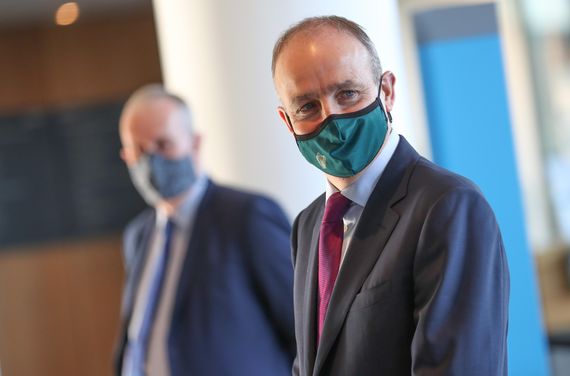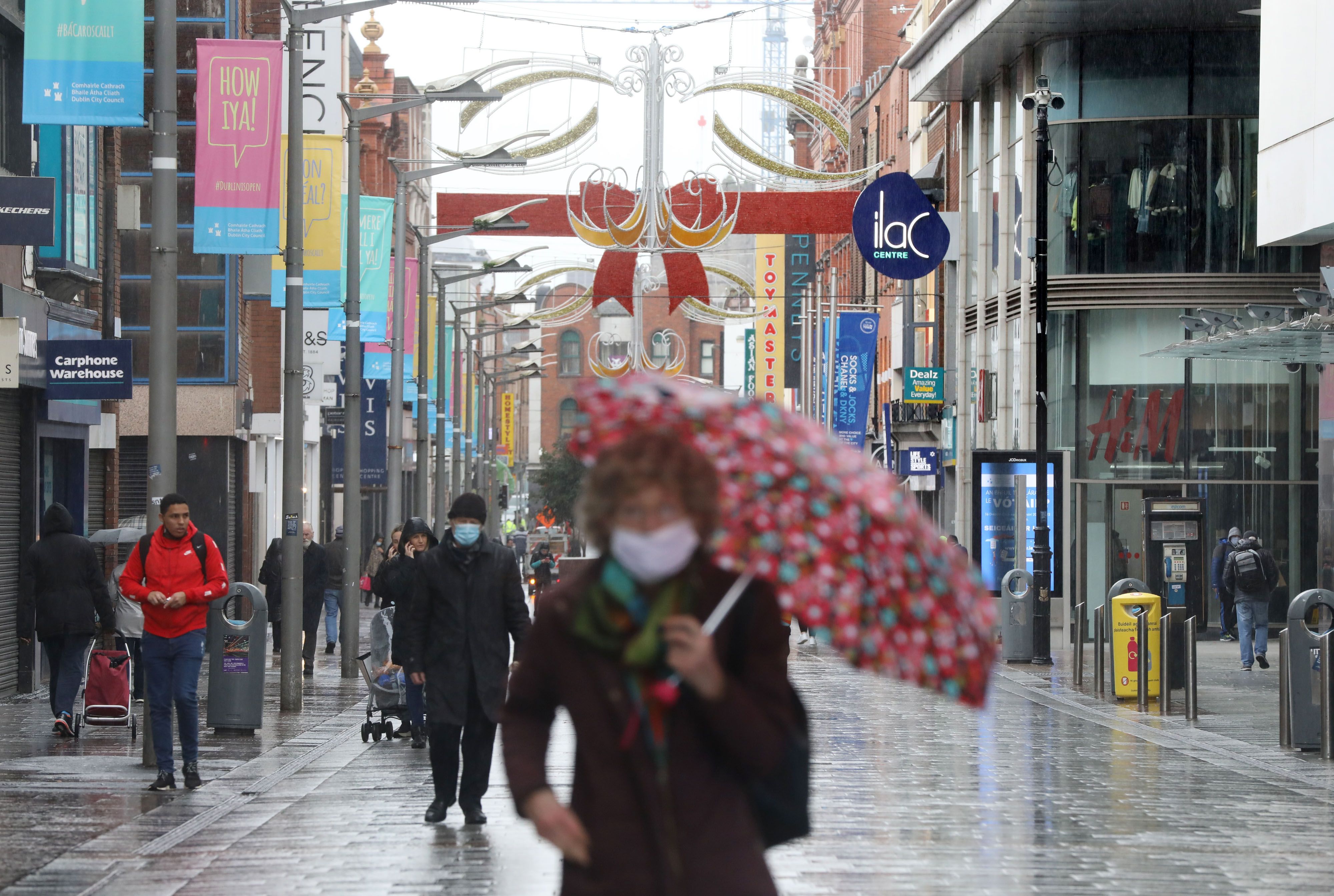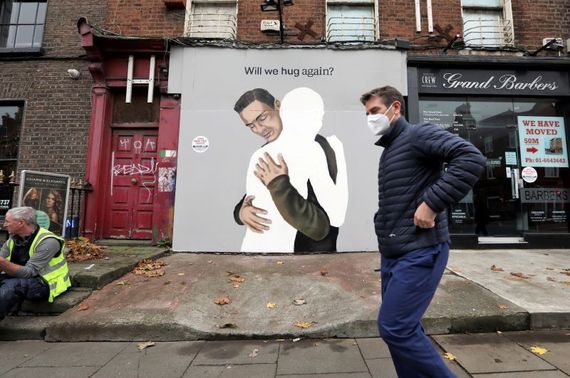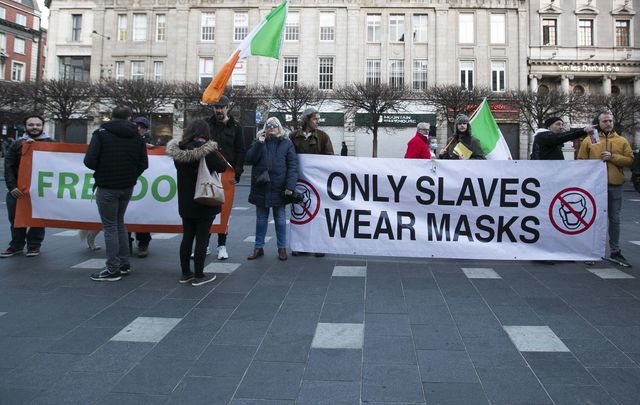Wednesday, December 2, is the day we are supposed to emerge from our six-week lockdown. It's been a full Level Five lockdown, the highest shutdown level we have here.
That has meant no bars, pubs, cafes, restaurants, or shops (apart from essential stores like food shops and pharmacies), and no gyms, clubs, sports, etc. It has meant working from home where possible, staying within three miles of where you live when exercising, staying home apart from essential journeys, no mixing with friends and relatives apart from your own family in your own home.
It has meant that much of the economy, apart from manufacturing, has had minimal activity and the hospitality and tourism sectors have been closed.
The past five weeks have seemed endless and now, with just a week to go, we can't wait to get out of lockdown. This week the government is trying to agree on which lower restriction level we can move to, how much we can safely reopen, and how soon.
The expectation is that we will go back to Level Three, which allows restaurants and bars that serve full meals to reopen, allows people to move around within their own county, and allows some mixing between households. It's where we were in the weeks before we were moved into full lockdown.
Read more
Taoiseach Michael Martin said last week he hopes this will be possible and that he wants people to be able to enjoy Christmas even if some restrictions still have to be in place. This is likely to mean we will be back on Level Three, but some of its rules will be eased.

Taoiseach Michael Martin.
Instead of the requirement to stay in your own county, for example, people may be allowed to travel to visit relatives in other counties around Ireland at Christmas time. Rules governing bars and restaurants may be eased a little, perhaps with shorter opening hours and a limit on overall numbers and on groups. And congregations may be allowed back at Mass and other religious services.
We will not be able to have anything like a normal Christmas, of course. But the fear among the authorities is that unless restrictions are eased substantially for the weeks before Christmas, people will simply ignore the rules and do what they want.
After weeks of a full lockdown, the majority of people here are fed up. They need a break and are determined to have one.
They want to be able to celebrate end enjoy Christmas. If the pubs are shut they will meet, drink, and party at home where there is no one to encourage social distancing.
Exactly how far the government will go may not become clear until later this week. What we do know is that the National Public Health Emergency Team (NPHET), the group of health experts advising the authorities here, is opposed to opening up too much. They say the figures simply are not good enough to allow this and that we risk getting back into a threatening situation again if we move too quickly.
The decision will depend mainly on the figures. There is some disagreement about these and how they should be interpreted.

Henry Street at Christmas during COVID.
What prompted the move to Level Five over a month ago was a relentless rise in the new case numbers to over 1,200 a day at the time. The new case numbers are now down to between 300 and 400 a day and have been at that level for over a week now. But instead of falling further, they seem to be stuck there.
This is worrying the NPHET experts who would like to see the number down to 100 cases a day or even lower before we begin to significantly relax restrictions. They want us to stick with severe restrictions until that is achieved, even though we are in the run-up to Christmas.
Ease up too early, they believe, and we will pay the price in overcrowded hospitals and rising deaths after the holiday. The virus does not know or care that it's Christmas time, they say.
Apart from the daily case numbers, other figures are included in the analysis, like the R number, the 14-day incidence rate, the number of outbreak clusters, hospital admissions, patients in ICU, and deaths. NPHET looks at the figures solely from a public health perspective, with the single aim of controlling the spread of the virus.
The government has to take a wider view, including the effect on the economy, on jobs, on the national mood and the ongoing willingness of the population to accept ongoing restrictions.
One of the main points made by those arguing for some relaxation is that the steady reduction in daily new case numbers over the past two or three weeks has been the result of the earlier Level Three restrictions working their way through.
They argue, as Tanaiste Leo Varadkar did two months ago before changing his mind, that the Level Five full lockdown, which has caused huge damage to the economy, may not have been necessary.

Will we hug again mural in Dublin.
There is no definitive way of knowing whether this is true. But it bolsters the case now for an immediate return to Level Three and a possible return to Level Two for the final week before Christmas.
Christmas is all about extended families coming together to celebrate. Level Three allows mixing with one other household. Level Two allows six people from up to three households to come together, a critical difference since it would allow both sets of grandparents to gather for Christmas dinner.
Level Three allows restaurants to offer outdoor dining, which is not much use on a wet December evening in Ireland. Level Two allows indoor dining, with up to six people from three households at a table.
The hospitality sector is pushing strongly for a resumption of indoor dining and says that without that before Christmas many restaurants will go bust. Some level of indoor dining is likely to be allowed even if we stay on Level Three. The entire retail sector will also be allowed to reopen, with masks and social distancing.
One thing that most people agree on is that the final decision on what happens over the Christmas period cannot be left to the NPHET health experts alone. It has to be a political decision, taking all factors into account.
We all want to keep the spread of the virus as low as possible. But it has to be done in the wider context of what the economy and the general population can bear.
Ireland is not the only country having this debate right now, although we were one of the first in Europe to go into a severe lockdown when the second wave of the virus gathered pace. On that basis, it could be argued that we deserve to come out of lockdown early. But it all depends on the figures, and this week's daily case numbers will be critical.
The U.K. is also trying to decide how much to ease restrictions for Christmas even though their numbers are still much worse than ours. Their shorter lockdown is also due to end on December 2 (like ours) and Prime Minister Boris Johnson is said to be considering a proposal to allow several households to mix for Christmas.
And in the U.S. where the situation is worse again, there is now a debate about how much mixing together is sensible this Thanksgiving, with the CDC strongly advising against travel for the holiday.
Complicating the decision here are the ongoing travel restrictions and isolation requirements which will make this Christmas a nightmare for the tens of thousands of our emigrants who will want to come home to be with family for the holiday. The announcement later this week may try to make it easier for them through a reduced isolation period or more available testing. Several government ministers said last week that they don't want to stop people coming home, although how that can be done safely is still far from clear.
There seems to be a general view here that even if it means a consequent rise in case numbers in the New Year, restrictions must be eased for Christmas. This is not the view of NPHET, which believes that case numbers this week and next week must be the deciding factor in whether we can have anything approaching a "normal" Christmas.
The problem is that it is virtually impossible to calculate in advance how big a surge in cases we might see late in January if that is allowed. If the situation deteriorated and deaths increased rapidly that would be unforgivable since widespread vaccination now appears to be just months away.A further complication here is the border and the different restrictions being applied in Northern Ireland. The failure to coordinate the response to the virus across the island of Ireland since the crisis began earlier this year has been a disgrace. Now with Christmas fast approaching it makes decisions here even harder.
In the background to all this, of course, is the hope raised by the vaccines that are on the way. The government here now expects to have approval from Europe for use of both the Pfizer and Moderna vaccines by the middle of December.
They expect to be in a position to start vaccinating front line workers and the most vulnerable here in January. The task force set up here to oversee the program believes that widespread vaccination across the entire population will be well underway a few months after that.
With an end to this nightmare now in sight, it would be a real shame if we allowed irresponsible behavior this Christmas to create weeks of tragedy in the New Year, just a few months before widespread vaccination begins. That's not the way anyone will want to remember this Christmas.




Comments